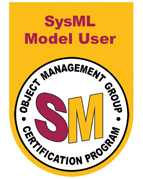ASE offers on-site training in the following Systems Engineering Areas. Courses can be tailored for specific domains or applications. Please email or call for a quote or for additional information.
Fundamentals of Concept Development (Mission Analysis) (2 days – 16 hours)
Course Description
In this course, students learn what concept exploration entails, how and why it is done, and what products it produces. Students will find out how to determine who the stakeholders are and how to determine the critical needs, goals, problems, limitations, issues, constraints, and priorities of each of these stakeholders. They will also learn how to Define the problem space, identify alternative solutions to system problems, and how to assess the relative multi-stakeholder value and drawbacks of each alternative. Students will learn how to choose a solution from the alternatives, basing the choice on their analysis of the multi-stakeholder value and drawbacks of the alternatives. Students will learn how to build a well-substantiated rationale for their choice of solution, and how to substantiate their choice to their stakeholders. They will also learn how to gather customer views and buy-in at all stages of Concept Exploration. Students will also learn how to generate Concept requirements and a high-level concept of operation for their chosen solution. This course includes both lecture and in-class exercises.
Course Learning Objectives:
- Determine the major stakeholders for any system that needs to be developed or upgraded
- Determine the relevant needs, goals, problems, limitations, issues, constraints, and priorities of each stakeholder group
- Identify the alternative solutions that satisfy the above
- Assess the pros and cons of each alternative solution from each stakeholder point of view
- Compare the alternative solutions regarding their value and drawbacks (cost benefit)
- Choose a solution (or solutions) that has relatively high benefit/cost ratio, does not violate any constraints, and fits within the timeframe and funding available for solution implementation
- Synthesize a well-substantiated multi-stakeholder-oriented rationale for the choice
- Write top-level requirements for the chosen solution
- Write a top-level concept of operations for the chosen solution
Fundamentals of Systems Engineering (2 days – 16 hours)
Course Description
This highly interactive course covers Systems Engineering fundamentals. The student will gain a working knowledge of systems planning, the concept of operations requirements, high-level design (architecture), integration, interface definition and development, verification and validation. Also, key cross-cutting areas of Development of Technical and Program Metrics, Configuration Management, Risk Management, Quality, integrating disciplines, Monitoring and Control and the various roles of a systems engineer in the system development process will be covered. This course includes both lecture and in-class exercises.
Course Learning Objectives
- Define and describe what a system is and its key attributes
- Describe what is systems engineering and what a systems engineer does
- Define and describe systems engineering process
- Describe a development model and deployment strategy
- Define, describe and analyze requirements
- Describe the Systems Planning Process
- Describe how to conduct a Technical Review
- Name and describe systems engineering standards and lifecycle models
- Name and describe the key aspects of systems engineering best practices
- Discuss the various Systems Engineering Standards
Configuration Management (2 days – 16 hours)
Course Description

Course Learning Objectives:
- Define and describe the steps in the CM process
- Describe the Configuration Item model
- Describe a Change Control Board and rolls of its members
- Describe the elements of a CM Plan
- Describe baseline management
- Describe the elements of status accounting
- Describe what an interface control working group is and how it relates to the CM Process
- Name and describe the key aspects of CM best practices
- List the various CM Standards
Requirements Engineering (2 days – 16 hours)
Course Description
This highly interactive course covers Requirements Engineering fundamentals with emphasis on key lean thinking concepts. Topics include Overview of the systems engineering process where requirements fit into the Systems Engineering process. The student will gain a working knowledge of problem space definition, stakeholder identification, the elicitation, documentation, analysis, verification, validation and management of requirements. Writing a good requirement and identifying requirements attributes. The various roles of a requirements engineer in the system development and the communications skills analysis and techniques needed for requirements elicitation. This course includes both lecture and in-class exercises.
Course Learning Objectives:
- Describe the role of requirements engineering in the systems engineering process
- Define and describe key aspects of defining the problem space
- Define, describe and the requirements engineering process
- Name and describe model-based requirements engineering
- List techniques for requirement elicitation
- List the criteria for a "good" requirement
- Describe requirements verification and validation
- Describe requirements traceability
- Describe requirements analysis
- Describe requirements management
- Describe the elements or a requirements specification
- List some requirements management tools
Systems Engineering for Project Managers (3 days – 24 hours)
Course Description

Course Learning Objectives:
- Describe the role of the Systems Engineer
- Describe the steps of the Systems Engineering process
- Describe the various technical development models
- Describe the different development strategies
- Describe how technical performance measures are defined and used
- Describe the role of a systems engineer
- Describe a Systems Engineering Management Plan and its contents
- Describe the Concept of Operations, Requirements, and Verification Plans
- Describe example systems engineering tool, techniques
- Describe the technical review process and control gates
Systems Engineering Certification Preparation Course (3 days – 24 hours)
Course Description
Each candidate prepares for certification in his/her unique way, building on personal strengths and improving individual areas of weakness. The ASE program provides professionals with tools to prepare for the INCOSE Certification application and exam. It guides individuals in analyzing their experiences, correctly presenting that experience on the CSEP application and it provides advice on selecting references that will verify their experience and serve as advocates for them. ASE provides course study materials for the examination and leads candidates through an overview of the materials. Also, the program provides multiple practice tests written in the same format as the certification exam. We also help assess candidates' knowledge, strengths, and weakness, and together we design individual study plans.
Program Format (1-day application preparation and 2-day handbook review)
This 3-day program guides individuals through the critical areas of the INCOSE Handbook in preparation for the INCOSE Exam. Students evaluate their expertise in each of the key areas and then construct individual study plans. To further ensure application readiness, students will have the option to participate in a 1-day INCOSE application workshop. All students can also take advantage of a follow-up conference call provided two weeks following program completion to ask any last minute questions before taking the certification exam.
Course Objectives:
- Pass the CSEP Exam
- Develop a study plan for passing the CSEP Exam
Next Steps...
Get in Touch with ASE to learn more about our systems engineering training seminars.


